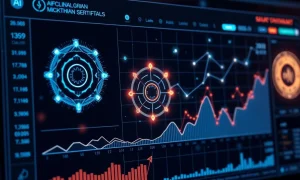Many financial experts confidently declare that recessions belong to history books. However, economic cycles continue turning despite technological advancements. This recession prediction complacency might prove costly for unprepared investors and businesses.
The Dangerous Myth of Permanent Growth
Some economists argue that modern economies evolved beyond traditional boom-bust cycles. They point to several key factors:
- Advanced monetary policies that supposedly smooth economic fluctuations
- Global interconnectedness creating more stable growth patterns
- Technology and automation reducing traditional business cycle impacts
Nevertheless, historical patterns suggest otherwise. Every economic expansion eventually meets contraction.
Historical Patterns Versus Modern Reality
Economic history shows consistent cyclical behavior. The Great Depression, 2008 financial crisis, and pandemic recession all followed periods of expert optimism. Current recession prediction models often fail to account for black swan events.
Market indicators frequently provide warning signs that experts dismiss as anomalies. Consequently, many miss crucial turning points until too late.
Why Recession Prediction Models Fail
Traditional economic models struggle with several critical elements:
- Behavioral economics factors that drive market sentiment
- Global geopolitical events that disrupt supply chains
- Technological disruptions that create new economic paradigms
Therefore, relying solely on historical data proves insufficient for accurate recession prediction.
Read Also: Essential Food Inflation Stock: 3 Reasons Analysts Say Buy Now as Produce Demand Soars
The Next Recession: What Experts Might Say
When the next economic downturn arrives, experts will likely offer various explanations. Some may claim it was unpredictable while others will say they saw signs earlier. The recession prediction industry will undoubtedly face scrutiny regardless.
Economic commentators often revise their narratives post-crisis. They frequently emphasize external factors rather than model limitations.
Preparing for Economic Uncertainty
Smart investors and businesses maintain preparedness despite optimistic forecasts. They understand that recession prediction remains an imperfect science. Diversification and risk management become crucial during extended growth periods.
Economic history teaches valuable lessons about cyclical nature. Those who ignore these lessons often suffer most during downturns.
Frequently Asked Questions
Why do some experts believe recessions are obsolete?
Some economists point to improved monetary policies, global economic integration, and technological advancements that theoretically smooth economic cycles and prevent severe downturns.
What are the limitations of current recession prediction models?
Most models struggle with incorporating behavioral economics, black swan events, geopolitical disruptions, and rapid technological changes that can trigger economic contractions.
How often have experts been wrong about economic predictions?
Economic forecasters have consistently failed to predict major recessions, including the 2008 financial crisis and the 2020 pandemic-induced downturn, despite advanced modeling techniques.
What indicators should investors watch for recession risks?
Key indicators include inverted yield curves, declining consumer confidence, rising unemployment claims, manufacturing slowdowns, and central bank policy changes.
How can businesses prepare for potential economic downturns?
Businesses should maintain strong cash reserves, diversify revenue streams, reduce unnecessary debt, and develop contingency plans for various economic scenarios.
Are there historical periods when experts made similar claims?
Yes, before both the Great Depression and 2008 financial crisis, many prominent economists declared that business cycles had been conquered through modern economic understanding.























